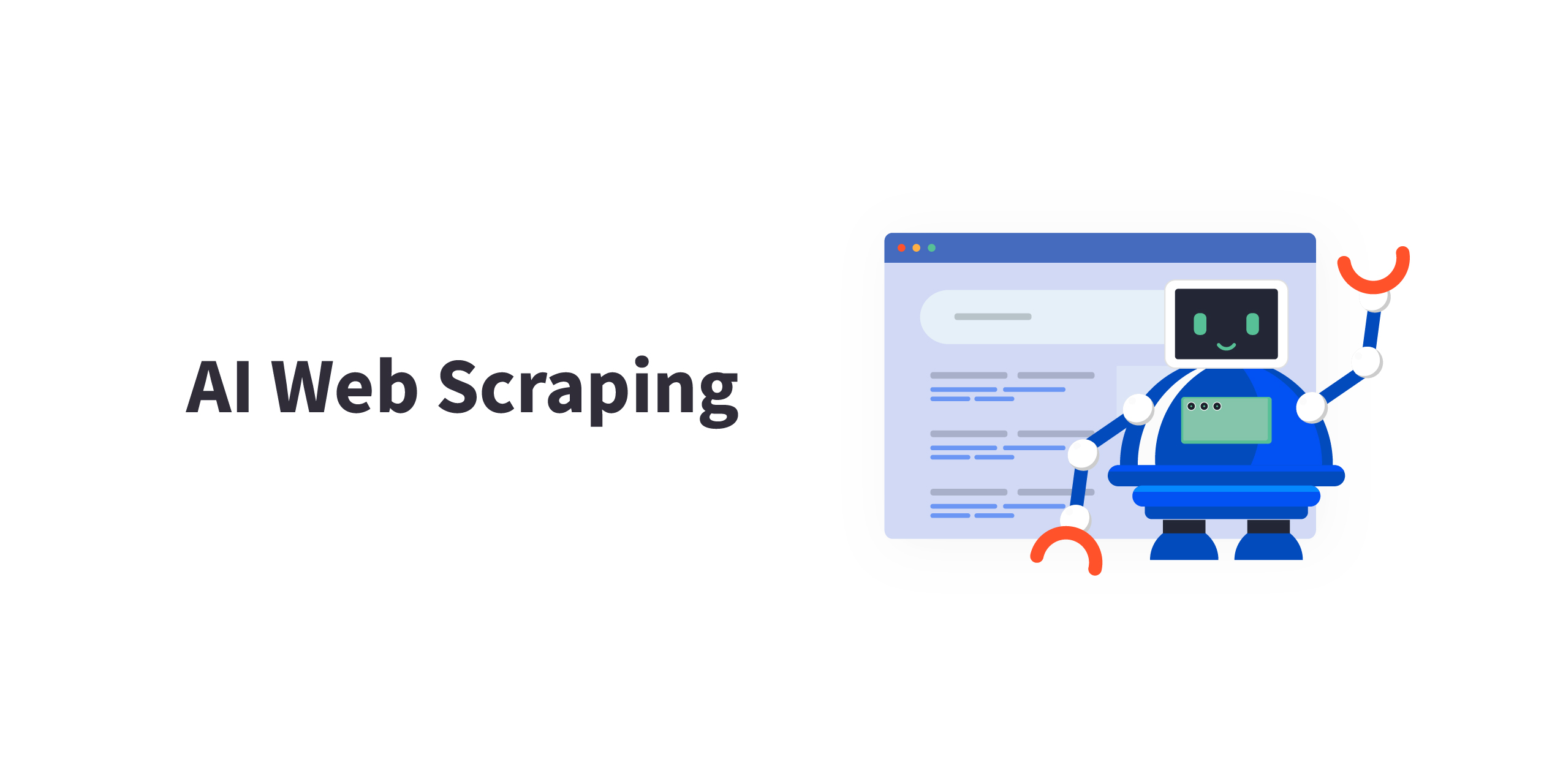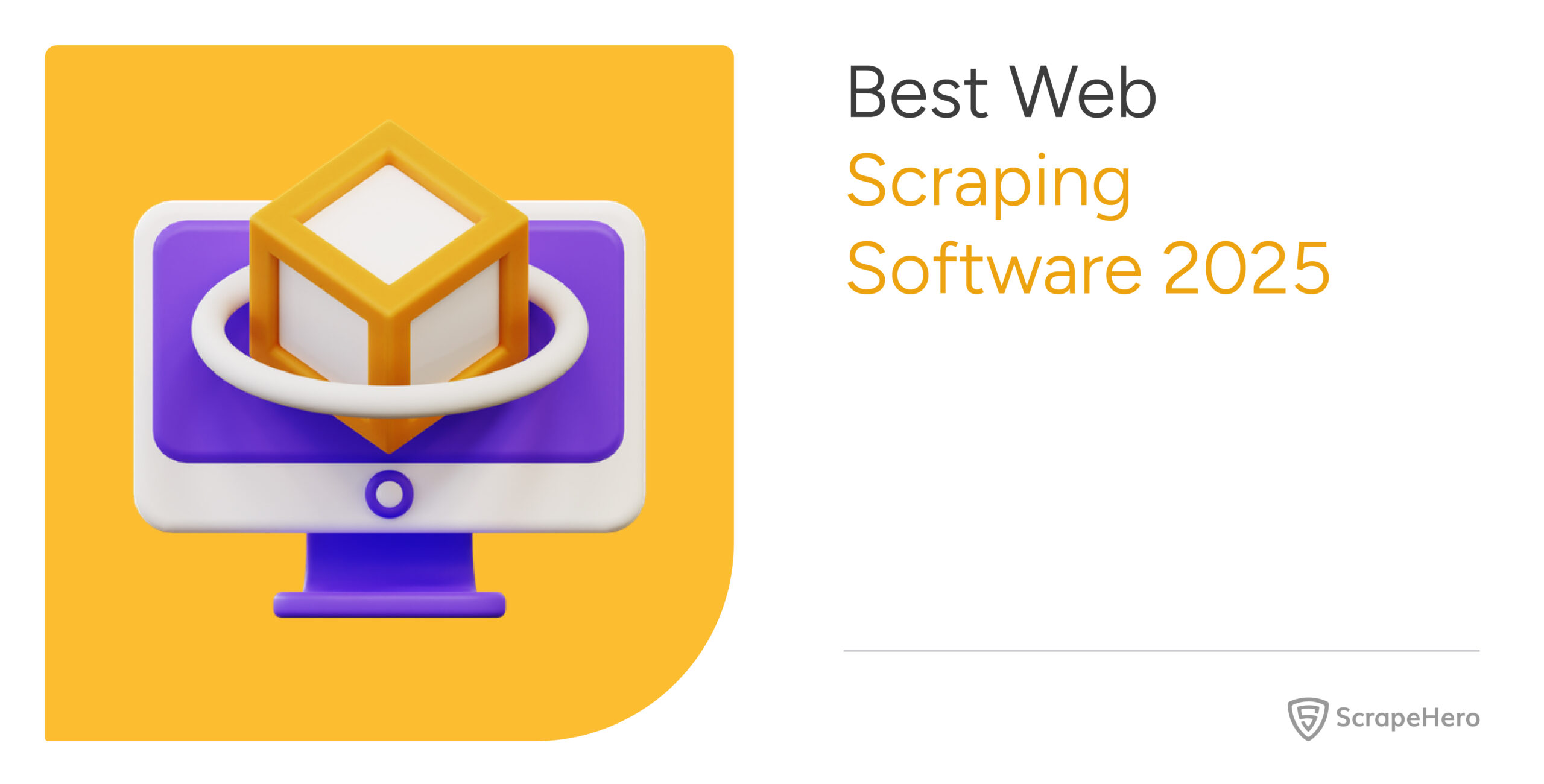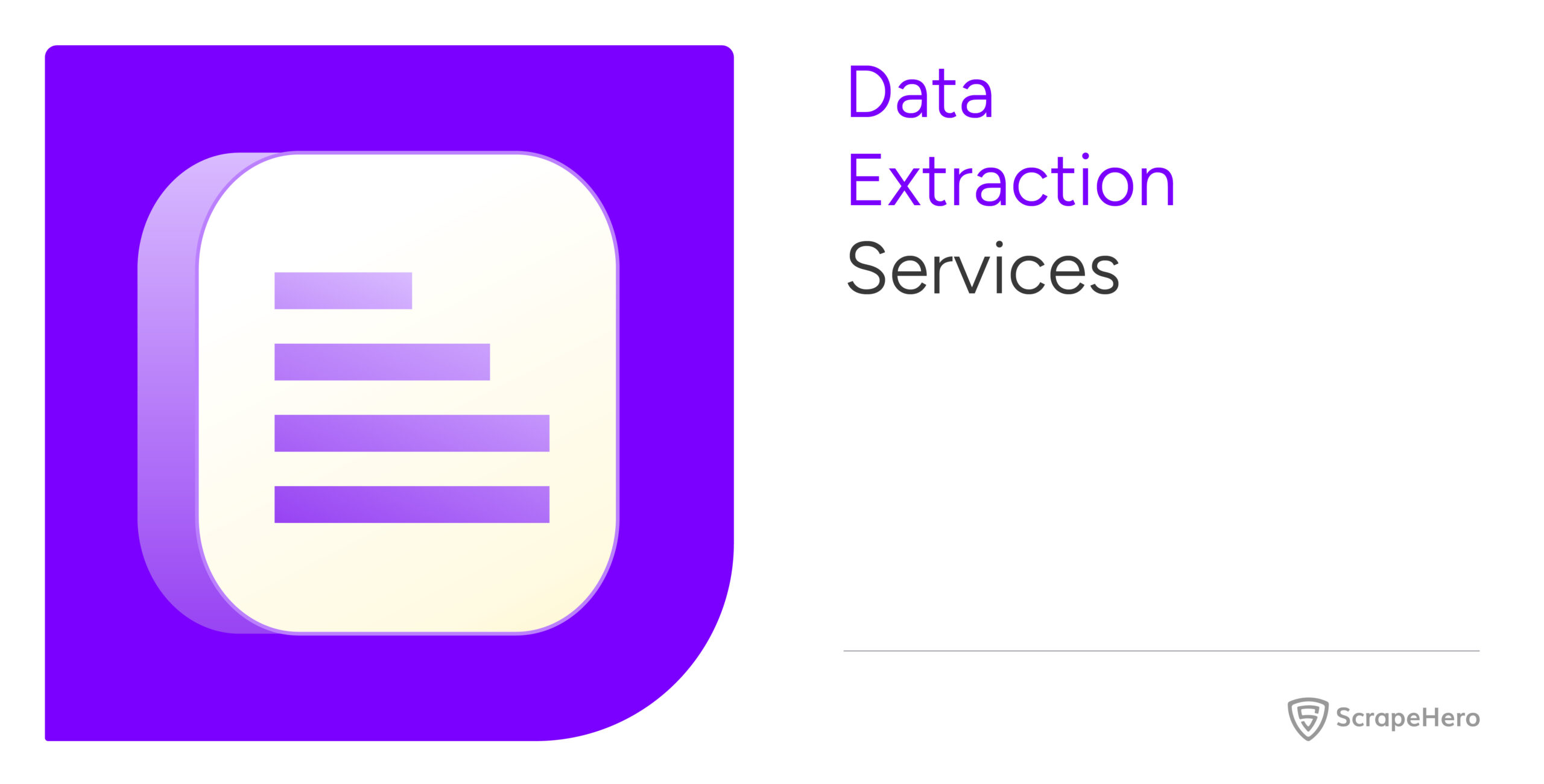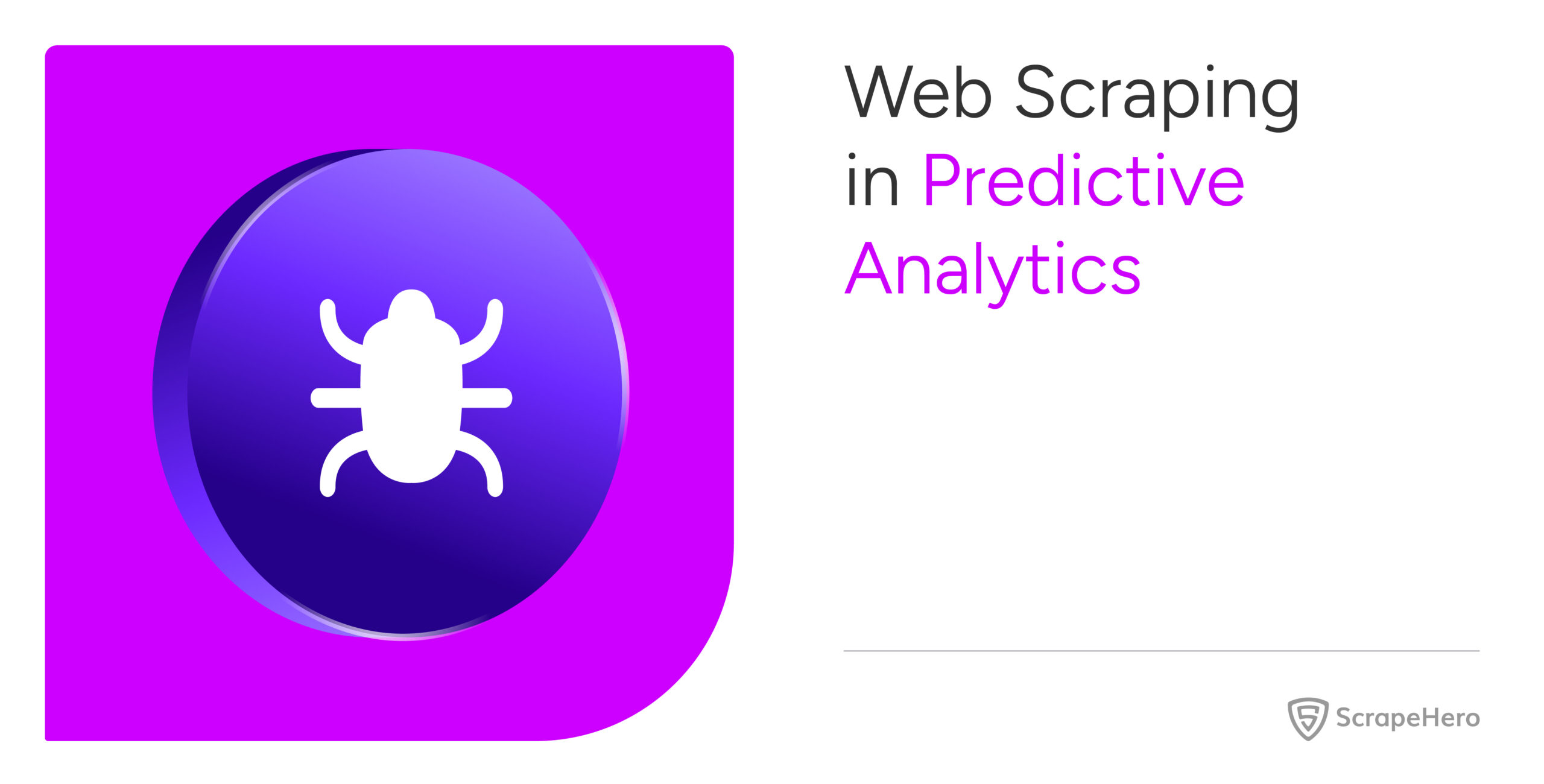Web scraping is a technique employed for extracting valuable information from websites. AI web scraping, on the other hand, is something that can take web scraping a little further with the use of artificial intelligence technologies and algorithms. It improves the accuracy, adaptability, and even efficiency of the entire scraping process.
Let’s delve deeply into the topic of web scraping AI through this article. We will also learn about how AI-driven web scraping can address the challenges and limitations that are common in traditional web scraping.
Scope of AI in Web Scraping
AI-based web scraping goes beyond data extraction and can offer advanced data analytics capabilities. It can take every stage of the web scraping process to the next level.
In the traditional web scraping process, fetching data by passing captchas and bot detection systems can be a difficult scenario. But advanced AI bots have the ability to imitate how the human brain works and can resolve this matter without affecting web scraping. Accurate data extraction and faster data processing also add to the advantages of artificial intelligence, which bring transformation to traditional web scraping processes.
It has been observed that web scraping by utilizing AI can improve datasets for faster and higher success rates. It also identifies data patterns from a scrape and even builds predictive analytics models based on them.
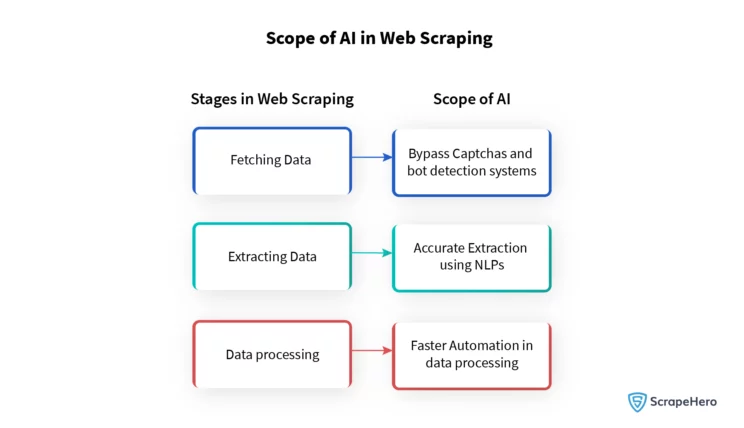
Some key features of AI web scraping that differentiate it from traditional web scraping include:
Adaptability
Traditional web scraping methods rely completely on the specific designs and structures of websites. When these websites evolve or undergo changes, traditional scrapers break. But AI-based web scraping can adapt to such changes as they autonomously identify the target web page’s structure by analyzing the DOM (Document Object Model) or by following specific patterns.
Precision
AI guarantees higher levels of precision for the acquired data. It has the ability to filter out noise and focus on relevant content, which is a job above the human level. AI web scraping is less likely to contain errors from data gathering to parsing to analyzing.
Scalability
Web scraping AI models are scalable and easily adaptable. They can handle large-scale extractions across numerous websites simultaneously, catering to both depth and breadth. This feature makes AI web scraping ideal for projects that require vast amounts of data from many sources.
Content Recognition
AI web scraping provides flexibility in data collection as it can handle different data formats like text, images, and videos effectively. The identification and categorization of images, understanding of context in unstructured data, etc., can add multiple layers of value to the scraping process.
Dynamic Proxy Technology
Applying AI to web scraping can overcome the challenges of browser fingerprinting, which is followed by websites to block web scrapers. AI can support the dynamic proxy technology and change the web scraper’s IP address dynamically for each web scraping request.
Apart from the above-mentioned features, AI web scraping also has the capability of classifying active URLs in bulk in order to avoid time-outs and resubmissions. It can also remove unnecessary information for future scrapes by analyzing used datasets.
Applications of AI Web Scraping
You might be well aware of the fact that pre-trained generative AI models like ChatGPT can improve the efficiency and effectiveness of web scraping processes. But are such models enough for huge amounts of automated data collection? AI web scraping can be an answer to this question to some extent.
AI-based web scraping can offer higher levels of automation and efficiency when compared to the usual manual data extraction methods. Especially when enterprises are concerned, the use of web scraping AI can assist them in staying competitive in the market through the creation of business strategies, the promotion of campaigns, or the development of new products.
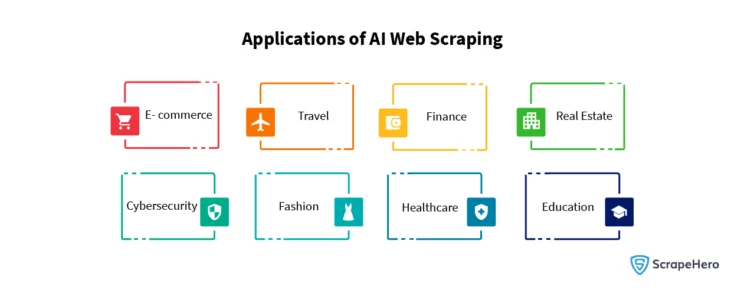
Let us now get a deeper understanding of how AI in web scraping can be implemented in various industries and fields and what major changes it brings in comparison with traditional web scraping methods.
-
E-commerce and Retail
In e-commerce and retail, computer vision-based scraping unlocks the potential of gathering insights from visual content, changing the web scraping landscape. Similarly, real-time monitoring of product prices and reviews can be done using AI.
-
Travel and Tourism
AI web scraping can create a huge leap in the travel and tourism industry because of its high level of accuracy in the extracted data. This huge amount of generated data can be interpreted effectively for better decision-making.
-
Finance and Law
In finance and law, AI web scraping can be used for algorithmic trading and investment strategies. Legal professionals can also make use of the possibilities of artificial intelligence in monitoring patent and trademark databases.
-
Real Estate
Al-based web scraping can provide advanced real estate analysis. Accurate analysis of properties, along with specific details such as the natural disaster probability of an area, parking facilities, and the area’s crime records, can be collected with advanced AI algorithms.
-
Cybersecurity
AI-based web scraping tools allow automatic scanning of sources known for hosting discussions related to hacking, malware distribution, or any other malicious activities. Potential threats can be identified, and swift action can be taken with this proactive approach.
-
Fashion
Web scraping AI can also bring about changes in the fashion industry as it can adapt and scale itself to handle millions of web pages for data research and analysis. This helps fashion brands make more informed decisions based on customer sentiments.
-
Healthcare
Using AI for web scraping, tracking, and analyzing health trends from various sources becomes much faster. The scalability and flexibility of AI can be used by the healthcare sector to collect relevant data on the latest topics, such as disease outbreaks, wellness behaviors, etc., from diverse data sources.
-
Education
AI web scraping does proper sampling and analyzes vast troves of data from various sources, such as academic journals, news sources, and forums, reducing the time involved. These data can be used for building intelligent tutoring systems or making learning platforms adaptive for personalized education.
Challenges and Limitations
When discussing the advantages of using AI for web scraping, there is a need to consider the fair share of challenges and limitations it has.
-
Legal and Ethical Constraints
When utilizing AI web scraping tools, you should be mindful of the terms of service, copyright laws, data privacy regulations, and the Computer Fraud and Abuse Act (CFAA) in the US.
Also, be aware of the ethical landscape, which includes the usage of data, excessive requests, and transparency. It’s crucial to adhere to laws and respect robots.txt files on websites.
-
Costs Involved
Large-scale AI web scraping can be expensive as these tools require higher computational resources, i.e., the right software and hardware.
Moreover, AI web scraping models need frequent updates to adapt to changing web structures, which again adds to costs.
-
Resource-Intensive
Machine learning models used in AI web scraping need high computational resources for their training and operation, which not all businesses can afford.
Cloud services may also be required for managing the computational load, which can become an extra burden because of the expenses involved.
-
Setup Time
AI can streamline the web scraping process. But in order to set up and train these models, a lot of time has to be dedicated. So AI web scraping can be considered a time-consuming process.
-
Maintenance
AI models must be trained and updated continuously, which involves labor, cost, and time. Another layer of complexity is continuous monitoring, which is essential for ensuring data quality.
Overcoming the Challenges and Ensuring Ethical Standards
AI web scraping and the tools used for it offer substantial benefits in terms of automation and efficiency. But are they a one-size-fits-all solution? No. Some extra effort must be put into fulfilling your specific needs and capabilities.
By tackling the challenges and limitations of AI-based web scraping, you could ensure its seamless integration with analysis systems. For this, you should address data source reliability, refine data collection methods, and overcome technical obstacles.
Ignoring legal and ethical guidelines can risk a brand’s reputation. This is why enterprises must choose responsible web scraping that respects the law and the website from which data is collected.
The future of AI web scraping is promising with developments in technology. More refined, accurate, and efficient data extraction will be possible with continued collaboration between businesses and regulators.
Wrapping Up
There is no doubt that AI-based web scraping is revolutionizing data extraction. For businesses and researchers, the opportunities that opened up with the emergence of AI in web scraping are endless.
To streamline data extraction processes and provide valuable insights, the use of AI web scraping is advisable. However, this decision requires ethical considerations and adherence to best practices.
ScrapeHero is a fully-fledged enterprise-grade web data provider that empowers organizations with responsibly extracted and analyzed data. A reliable platform like ScrapeHero can be consulted to meet your custom web scraping, APIs, alternative data, POI location data, and RPA needs.
We can help with your data or automation needs
Turn the Internet into meaningful, structured and usable data

